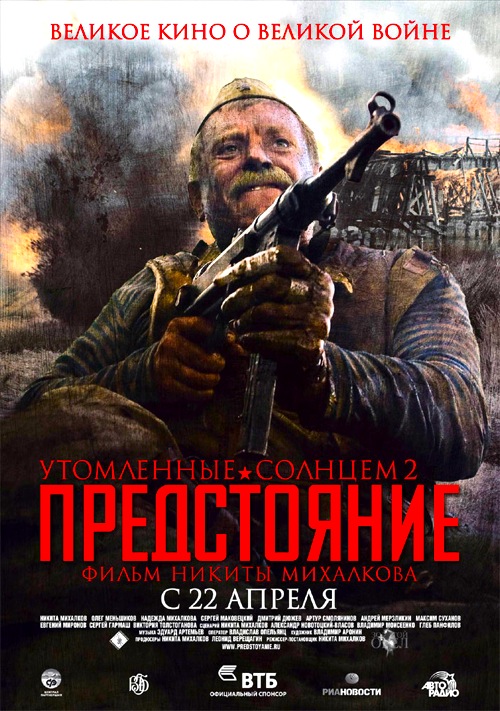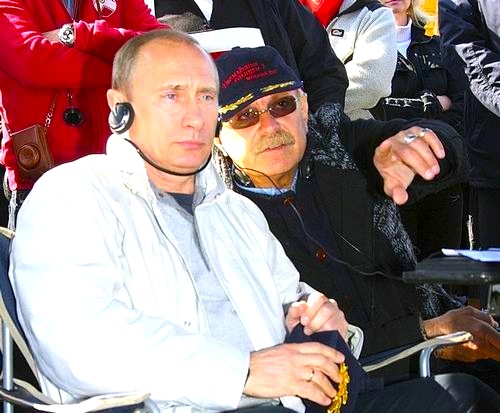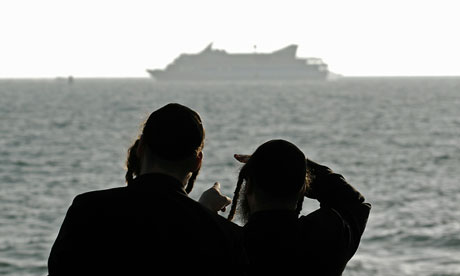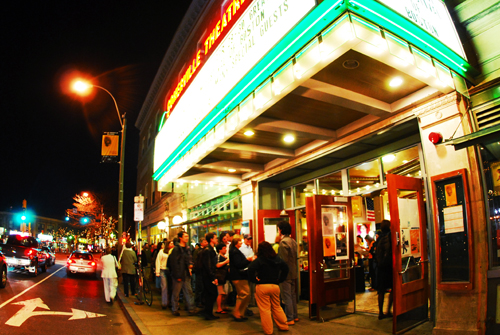
By Govindini Murty. Variety announced on June 22nd that Nikita Mikhalkov, one of Russia’s leading filmmakers, will be honored with a Crystal Globe for “Outstanding Artistic Contribution to World Cinema” at the upcoming Karlovy Vary International Film Festival in Czechoslovakia (taking place July 2-10, 2010). This news item caught my attention because Mikhalkov, the Academy Award-winning director of Burnt By the Sun, has been getting a lot of attention in Europe lately for his strongly Russian nationalist and Slavophilic views. Mikhalkov’s recent film Burnt By the Sun 2: Exodus aroused controversy in Europe this past spring because it was partially financed by the Russian government and received an extensive marketing campaign from them (including a red-carpet premiere with thousands of guests at the Kremlin), and allegedly contains pro-Russian nationalist propaganda. Burnt By the Sun 2 is the most expensive Russian film ever made with a budget of $55 million dollars, and yet it flopped at the Russian box office, making only $2.5 million dollars its opening weekend – in large part due to public controversy over Mikhalkov’s close ties to Vladimir Putin and the current Russian regime.
Nonetheless, the Cannes Film Festival screened Burnt by the Sun 2 this past May, and now the Karlovy Vary International Film Festival is giving Mikhalkov its foremost award for his body of work. Nikita Mikhalkov is undeniably a talented actor, director, and producer with an accomplished cinematic oevre. However, given Mikhalkov’s controversial political statements (such as his open letter in 2007 asking Putin not to step down after his term of office expired), and the strongly Russian nationalist content of his recent films, it’s interesting that Karlovy Vary – one of Europe’s premiere film festivals – would be honoring him this year. There has been little discussion in America of Burnt By the Sun 2 or of other Mikhalkov films like 1612 and The Barber of Siberia (in part because they have not been released here), but they are important nonetheless as evidence of a resurgent nationalism in the Russian cinema that may have political repercussions for America and the rest of the world.
Nikita Mikhalkov comes from a noted Russian artistic family. His father wrote the lyrics to both the Soviet and Russian national anthems, his mother was a poetess, and his brother Andrei Konchalovsky is an acclaimed director of such films as Siberiade and The Inner Circle. Mikhalkov has acted in and directed films since the 1960s, with his breakthrough film coming in 1974 with At Home Among Strangers (an ostern, or “eastern” that was the Soviet answer to the popular American westerns). Mikhalkov’s biggest success, though, has been Burnt By the Sun (1994), which won both the Academy Award for Best Foreign Language Film and the Grand Prize at Cannes. Burnt By the Sun tells the story of a loyal Soviet colonel in the 1930s who was falsely accused of treachery by Stalin and condemned to death. The film received acclaim in the West for being one of the few films made in post-Soviet Russia to criticize the horrors of communism.

Mikhalkov followed this courageous defense of democratic freedom, though, by turning toward Russian nationalism. His 1998 film The Barber of Siberia was a patriotic historical epic in which Mikhalkov himself played Tsar Alexander III. Some saw this as preparation for a run by Mikhalkov for political office. His Wikipedia biography notes: “The film received the Russia State Prize and spawned rumours about Mikhalkov’s presidential ambitions.”
In 2007 Mikhalkov produced 1612, a patriotic historical epic commissioned by the Kremlin and partially funded by oligarch Viktor Vekselberg (best known in the West for buying up Russian imperial Faberge eggs so they could be repatriated to Russia). Directed by Vladimir Khotinenko, the film was intended to commemorate the victory in 1612 of Russian forces over Polish-Lithuanian invaders who’d wrought havoc in Russia during a period known as “The Time of Troubles” (that took place in the interregnum between the end of the Rurik dynasty in 1598 and the beginning of the Romanov dynasty in 1613 under Tsar Michael Romanov). The Kremlin commissioned the historical film in order to mark the creation of a new national holiday on November 4th. (And in the best Russian imperial style, 1612 was celebrated in Moscow with a lavish red-carpet premiere – complete with Russian models in white leather handing out birch-flavored vodka to guests.) However, many saw the film as an obvious allegory of modern Russia’s own “Time of Troubles” in the 1990s after the fall of Communism, which was ended by the tsar-like rise of Vladimir Putin in 2000. As Chris Baldwin reports in this Reuters article: Continue reading A Dangerous New Nationalism in Russian Cinema?

